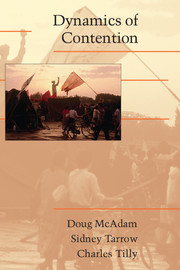Book contents
1 - WHAT ARE THEY SHOUTING ABOUT?
Published online by Cambridge University Press: 05 June 2012
Summary
“On thinking of the events that have happened since the beginning of the week,” confided Parisian bookseller Siméon-Prosper Hardy to his journal on July 17, 1789, “it is hard to recover from one's astonishment” (BN Fr 6687 [Bibliothèque Nationale, Paris, Fonds Français, no. 6687]). It had, indeed, been quite a week in Paris; that week's pages of Hardy's neatly penned journal contain extraordinarily vivid portraits of contentious politics. No such tumults had shaken Paris since the Fronde of 1648–1653. From the time when the Third Estate's representatives to the Estates General in Versailles declared themselves a national assembly on June 17, detachments of royal troops had been gathering around the Paris region. On several occasions, however, whole companies had refused to use their arms against civilians or had even joined in popular attacks on troops that remained loyal to the king. By early July, signs of great division were appearing within the regime.
When the king dismissed popular finance minister Jacques Necker on July 11, mass marches and gatherings began to overflow Parisian streets. That night people sacked tollgates on the city's perimeter, then danced around the ruins. During the next few days, electoral assemblies, their provisional committees, and their hastily formed militias began running much of Paris. Meanwhile, bands of Parisians broke into prisons and other public buildings, freeing prisoners, seizing arms, and taking away provender stored within.
- Type
- Chapter
- Information
- Dynamics of Contention , pp. 3 - 37Publisher: Cambridge University PressPrint publication year: 2001



